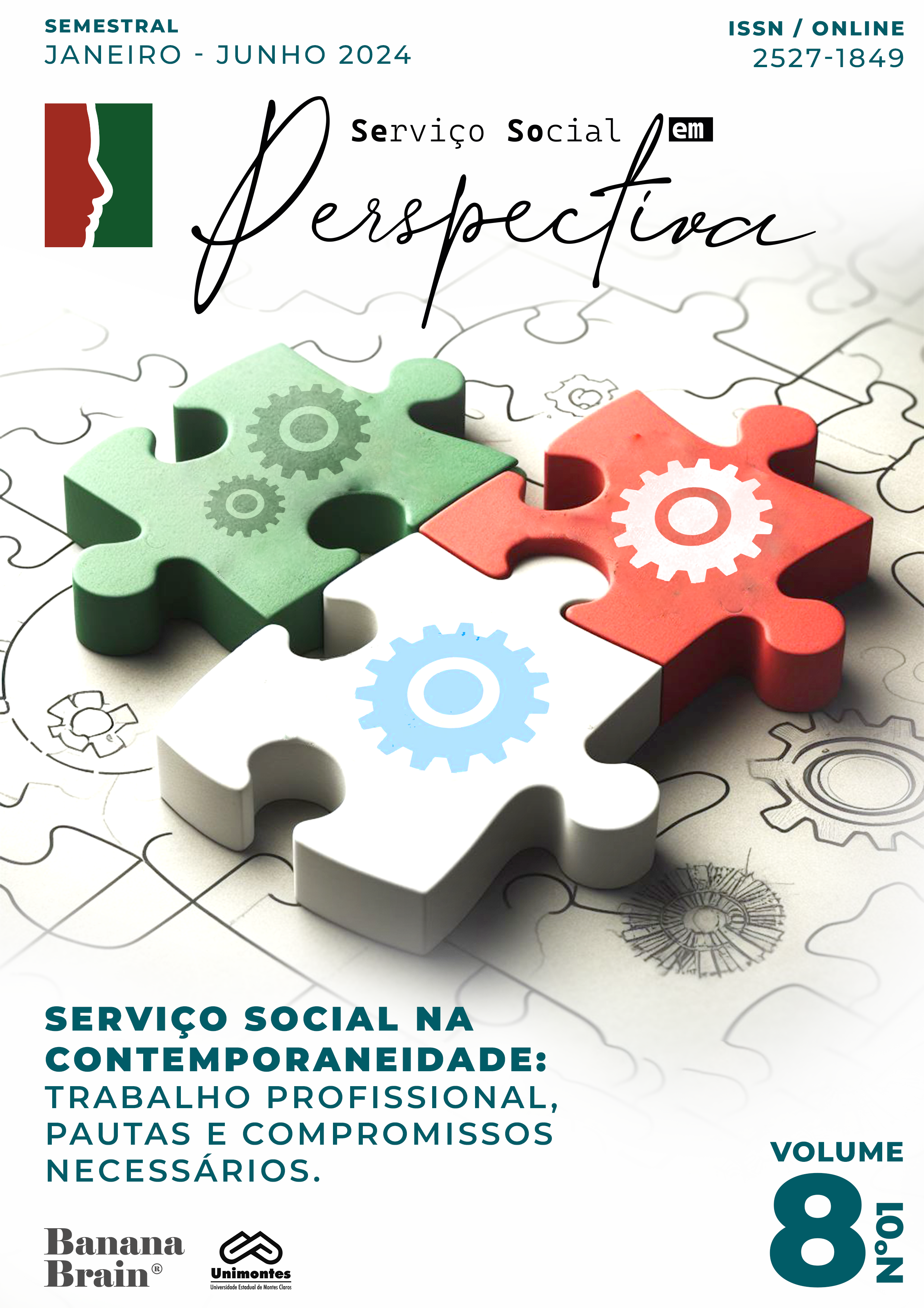GENDER, RACE AND INTERSECTIONALITY IN THE ACADEMY
what is being produced about the black woman?
DOI:
https://doi.org/10.46551/rss202410Keywords:
Decolonialidade, Mulher Negra, Produção Científica, Racismo EstruturalAbstract
This article aims to analyze stricto sensu scientific production on black women, in view of the intersectional relationship that permeates their existence, such as the confrontation with issues of race, class and gender. We sought to identify how the theme is addressed in higher education institutions and the characteristics associated with this production. The research was developed through a sample survey, which gathered a total of 2,723 postgraduate works, based on four indicators: black women, racism, structural racism and decoloniality. The analyzed period runs from 2017 to 2021. From the data and analyzes developed, it was possible to observe that the states that most produced about the categories were Rio de Janeiro, São Paulo and Bahia; Among the universities, UFBA, CEFET-RJ, USP and UFMG stand out. Textual content analysis showed that most of the productions shared a qualitative character and usually addressed themes associated with categories such as race, gender, violence, education and health. In addition, it was identified that identity phenomena, especially the racial identity of researchers, can influence the scientific investigations produced by them. Finally, it was concluded that discussions about black women are substantial, being present in 41% of the works analyzed, but, even though the share of productions is expressive, it is also necessary to point out that there is a long way to go to achieve the necessary visibility. to such productions, starting with the entrance and permanence of these women in the university environment.
Downloads
References
AKOTIRENE, Carla. Interseccionalidade. São Paulo: Sueli Carneiro; Pólen, 2019. 152 p.
ALMEIDA, SILVIO. Racismo estrutural. São Paulo: Sueli Carneiro; Ed. Jandaia, 2020. 264 p.
BABBIE, Earl. Métodos de pesquisa de survey. Belo Horizonte: Ed. UFMG, 2003. 519 p.
BOURDIEU, Pierre. A Dominação Masculina. 11º ed. Rio de Janeiro: Bertrand Brasil, 2012. 160 p.
BRASIL. CAPES: catálogo de teses e dissertações [online]. 2016. Disponível em: <https://catalogodeteses.capes.gov.br/catalogo-teses/#!/>. Acesso em: 15 mar. 2022.
BRASIL. Censo da Educação Superior 2019. Brasília: INEP, 2020 [online]. Disponível em: . Acesso em: 25 out. de 2022.
BRASIL. Constituição da República Federativa do Brasil de 1988. Brasília: Presidência da República [online], 2020. Disponível em: <https://www.planalto.gov.br/ccivil_03/constituicao/constituicao.htm>. Acesso em: 25 out de 2022.
BRASIL. IBGE- PNAD Contínua. 2019. Disponível em: <https://www.ibge.gov.br/estatisticas/sociais/trabalho/9171-pesquisa-nacional-por-amostra-de-domicilios-continua-mensal.html?=&t=downloads>. Acesso em: 20 out. 2022.
BRASIL. IBGE. População residente por cor ou raça e religião. SIDRA, 2010. Disponível em: <https://sidra.ibge.gov.br/tabela/2094#/n1/all/n2/all/n3/all/v/1000093/p/last%201/c86/allxt/c133/0/d/v1000093%201/l/v,p+c86,t+c133/resultado>. Acesso em: 22 maio 2023.
BRASIL; CEFET-RJ. Portal Cefet-RJ. Ministério da Educação [online]. 2023. Disponível em: <http://www.cefet-rj.br/>. Acesso em: 11 maio 2023.
BRASIL; UFBA. Portal UFBA. Ministério da Educação [online]. 2023. Disponível em: <https://www.ufba.br/>. Acesso em: 12 maio 2023.
CLARIVATE ANALYTICS. A Pesquisa no Brasil: Promovendo a excelência. Web of Science Group, 2019. Disponível em: <https://discover.clarivate.com/Research_Excellence_Awards_Brazil_Download>. Acesso em 25 out. 2022.
DAVIS, Angela. Mulheres, raça e classe. São Paulo: Boitempo, 2016. 262 p.
ENGELS, Friedrich. A origem da família, da propriedade privada e do Estado. São Paulo: Lafonte, 2017. 222 p.
EVARISTO, Conceição. Da grafia-desenho de minha mãe um dos lugares de nascimento de minha escrita. Nossa Escrevivência, 2003 [online]. Disponível em: <http://nossaescrevivencia.blogspot.com/search?q=da+grafia+desenho>. Acesso em: 18 maio 2023.
FANON, Frantz. Pele negra, máscaras brancas. Salvador: EDUFBA, 2008. 194 p.
GOOGLE. Google Trends [online]. 2023. Disponível em: <https://trends.google.com.br/trends/>. Acesso em: 25 maio 2023.
HOOKS, Bell. Ensinando a transgredir: a educação como prática da liberdade. São Paulo: WMF Martins Fontes, 2013. 283 p.
MINAYO, Maria; SANCHES, Odécio. Quantitativo-Qualitativo: Oposição ou Complementaridade? Cad. Saúde Pública. Rio de Janeiro, p. 237-248, 1993. Disponível em: <https://doi.org/10.1590/S0102-311X1993000300002>. Acesso em: 20 out. 2022.
PIEDADE, Vilma. Doloridade. São Paulo: Editora Nós, 2017. 64 p.
RIBEIRO, Djamila. O que é: lugar de fala? Belo Horizonte: Letramento: Justificando, 2017. 112 p.
SCOTT, Joan. Gender: a useful category of historical analyses. Gender and the politics of history. New York, Columbia University Press, 1989.
SEMESP. Semesp. 2021. Disponível em: <https://www.semesp.org.br/>. Acesso em: 21 maio 2023.
UFMG. Portal UFMG [online]. 2023. Disponível em: <https://ufmg.br/>. Acesso em: 2 maio 2023.
VOYANT DATA TOOLS. Voyant: see through your text [online]. 2023. Disponível em: <https://voyant-tools.org/>. Acesso em: mar. de 2023.
Downloads
Published
How to Cite
Issue
Section
License
Copyright (c) 2023 Revista Serviço Social em Perspectiva

This work is licensed under a Creative Commons Attribution-NonCommercial 4.0 International License.











